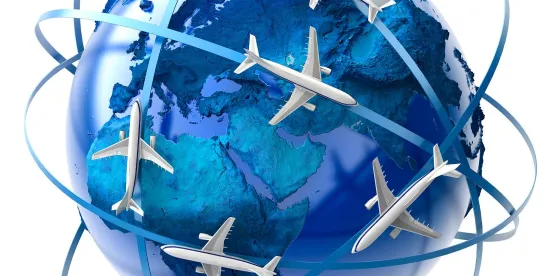Recent Developments
President Biden blocks Nippon Steel’s acquisition of US Steel. On January 3, President Biden announced that he would block the $15 billion sale of U.S. Steel to Japan’s Nippon Steel, citing national security concerns. President Biden’s decision came after the Committee on Foreign Investment in the United States (“CFIUS”) reportedly deadlocked in its review of the transaction and referred the matter to the President. U.S. Steel and Nippon Steel condemned the President’s action in a joint statement, arguing it marked “a clear violation of due process and the law governing CFIUS,” and on January 6 filed suit challenging the measure.
Canadian Prime Minister Justin Trudeau announces his resignation as party leader and prime minister. On January 6, Prime Minister Trudeau, who has served as the Liberal Party leader since 2013 and prime minister since 2015, declared his intention to “resign as party leader, as prime minister, after the party selects its next leader through a robust, nationwide, competitive process.” Governor General Mary Simon suspended, or prorogued, the Canadian Parliament until March 24 to allow the Liberal Party time to select its new leader—who will replace Trudeau as prime minister leading up to the general elections, which must be held by October 20. Separately, details have begun to leak of the potential Canadian retaliation against President-elect Trump’s threatened tariffs on Canadian goods. This retaliation could include tariffs on certain steel, ceramics, plastics, and orange juice.
U.S. Department of Commerce announces new export controls for AI chips. On January 13, the U.S. Department of Commerce’s Bureau of Industry and Security (“BIS”) issued a new interim final rule in an effort to keep advanced artificial intelligence (“AI”) chips from foreign adversaries. The interim final rule seeks to implement a three-tiered system of export restrictions. Under the new rule, (i) certain allied countries would face no new restrictions, (ii) non-allied countries would face certain restrictions, and (iii) U.S. adversaries would face almost absolute restrictions. BIS followed up with another rule on January 15 imposing heightened export controls for foundries and packaging companies exporting advanced chips, with exceptions for exports to an approved list of chip designers and for chips packaged by certain approved outsourced semiconductor assembly and test services (“OSAT”) companies.
Biden Administration imposes sanctions against Russia’s energy sector in parting blow. On January 10, the U.S. Department of the Treasury (“Treasury”) issued determinations authorizing the imposition of sanctions against any person operating in Russia’s energy sector and prohibiting U.S. persons from supplying petroleum services to Russia, and designated two oil majors—Gazprom Neft and Surgutneftegas—among others.
BIS issues final ICTS rule on connected vehicle imports and begins review of drone supply chain. On January 14, BIS issued a final rule under the Information and Communications Technology and Services (“ICTS”) supply chain regulations prohibiting the import of certain connected vehicles and connected vehicle hardware, capping a rulemaking process that started in March 2024. The rules, which will have a significant impact on the auto industry supply chain, will apply in certain cases to model year 2027 and in certain other cases to model year 2029. (See our alert on BIS’s proposed rule from September 2024.) Meanwhile, BIS launched an ICTS review on January 2 into the potential risk associated with Chinese and Russian involvement in the supply chains of unmanned aircraft systems, issuing an Advance Notice of Proposed Rulemaking.
China implicated in cyberattack on the U.S. Treasury. In December, a China state-sponsored Advanced Persistent Threat (“APT”) actor hacked Treasury, using a stolen key. Reports suggest that attack targeted Treasury’s Office of Foreign Assets Control (“OFAC”), which administers U.S. sanctions programs, among other elements of Treasury. Initial reporting indicated that only unclassified documents were accessed by hackers, although the extent of the attack is still largely unknown. The Chinese government has denied involvement.
United Kingdom joins the Comprehensive and Progressive Agreement for Trans-Pacific Partnership. On December 15, the United Kingdom officially joined the Comprehensive and Progressive Agreement for Trans-Pacific Partnership (“CPTPP”)—a trade agreement between Australia, Brunei, Canada, Chile, Japan, Malaysia, Mexico, New Zealand, Peru, Singapore, and Vietnam—nearly four years after submitting its 2021 application. The United Kingdon is the first non-founding country to join the CPTPP.
Fallout of failed presidential martial law declaration continues in South Korea. South Korea continues to face unrest after last month’s short-lived declaration of martial law by President Yoon Suk Yeol, which led to his December 14 impeachment and January 15 arrest by anti-corruption investigators. On December 27, the National Assembly also impeached Prime Minister Han Duk-soo, who had been serving as acting president for the two weeks following Yoon’s impeachment. Finance Minister Choi Sang-mok now serves as acting president, and faces calls from South Korean investigators to order the presidential security service to comply with a warrant for President Yoon’s arrest.
Office of the U.S. Trade Representative initiates investigation into legacy chips from China. In late December, U.S. Trade Representative (“USTR”) Katherine Tai announced a new Section 301 investigation “regarding China’s acts, policies, and practices related to the targeting of the semiconductor industry for dominance.” The USTR will focus its initial investigation on “legacy chips,” which are integral to the U.S. manufacturing economy. The USTR began accepting written comments and requests to appear at the hearing on January 6. The public hearing is scheduled for March 11-12.
President-elect Donald Trump eyes the Panama Canal and Greenland. At the December 2024 annual conference for Turning Point USA, President-elect Donald Trumpcriticized Panama’s management of the Panama Canal, indicating that the United States should reclaim control due to “exorbitant prices” to American shipping and naval vessels and Chinese influence in the Canal Zone. Panamanian President José Raúl Mulino rejected Trump’s claims, stating “[t]he canal is Panamanian and belongs to Panamanians. There’s no possibility of opening any kind of conversation around this reality.” President-elect Trump also has sought to revive his 2019 proposal to purchase Greenland from Denmark, emphasizing its strategic position in the Arctic and untapped natural resources. In response, Greenland’s Prime Minister Mute Egede stated that Greenland is not for sale, but would “work with the U.S.—yesterday, today, and tomorrow.”
Nicolás Maduro sworn in for third presidential term, despite disputed election results. On January 10, Nicolás Maduro Moros was inaugurated for another six-year term as president of Venezuela, despite evidence he lost the election to opposition candidate Edmundo González Urrutia. Gonzalez, recognized by the Biden Administration as the president-elect of Venezuela, met with President Biden in the White House on January 6. In response to Maduro’s inauguration, the United States announced new sanctions programs against Maduro associates and extended the 2023 designation of Venezuela for Temporary Protected Status by 18 months.
U.S. Department of Defense designates more entities on Chinese Military Companies list. In its annual update of the Chinese Military Companies list (“CMC list”), the Department of Defense (“DoD”) added dozens of Chinese companies to the list, including well-known technology, AI, and battery companies, bringing the total number of CMC List entities to 134. Beginning in June 2026, DoD is prohibited from dealing with the newly designated companies.
European Union and China consider summit to mend ties. On January 14, European Council President António Costa and Chinese President Xi Jinping spoke via phone call, reportedly agreeing to host a summit on May 6, 2025—the 50th anniversary of EU-China diplomatic relations. The conversation comes just days before the inauguration of President-elect Donald Trump, who has threatened additional tariffs on Chinese goods and pushed the European Union to further decouple from China. Despite Beijing’s and Brussels’s willingness to meet, China-EU trade tensions remain high, highlighted by the European Commission’s October decision to impose duties of up to 35% on Chinese-made electric vehicles.




 />i
/>i
